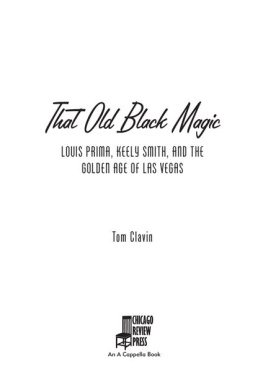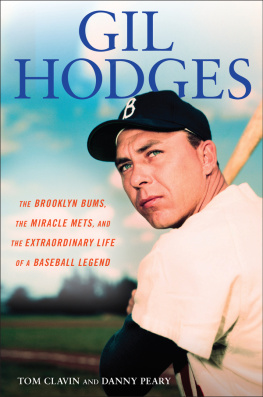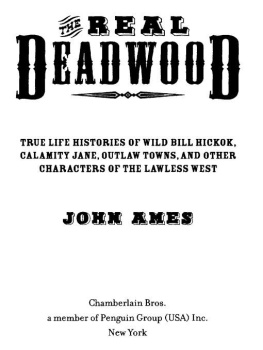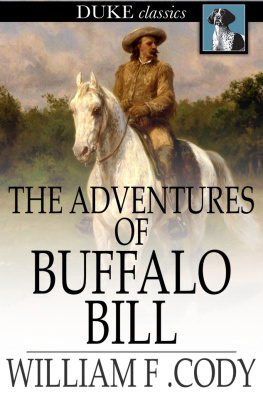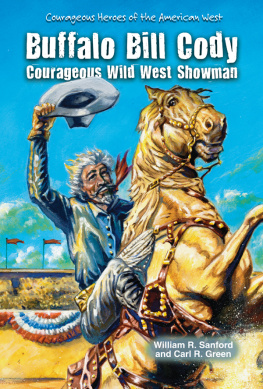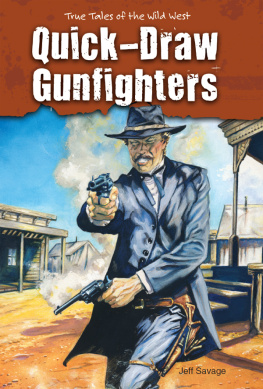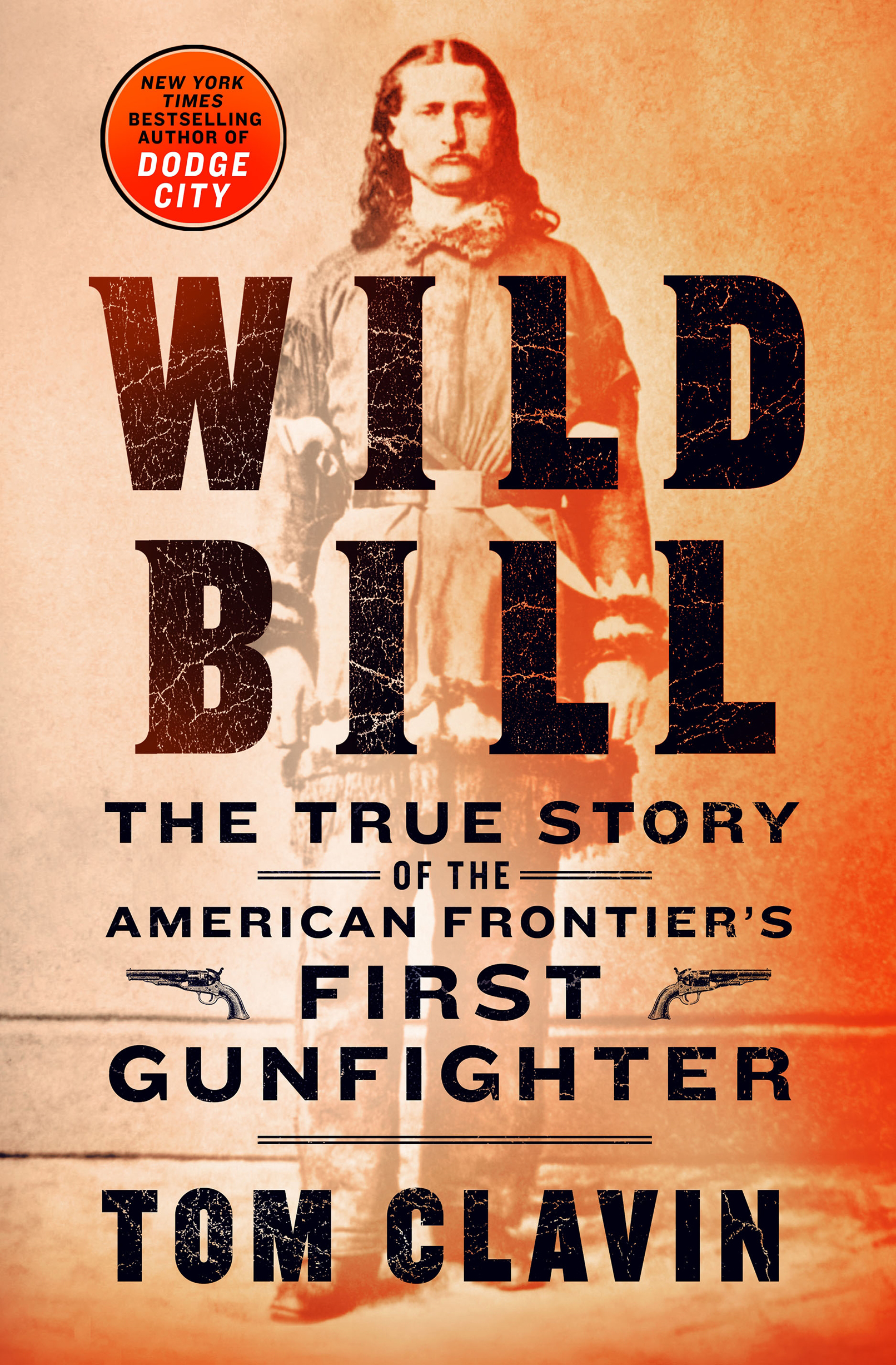The author and publisher have provided this e-book to you for your personal use only. You may not make this e-book publicly available in any way. Copyright infringement is against the law. If you believe the copy of this e-book you are reading infringes on the authors copyright, please notify the publisher at: us.macmillanusa.com/piracy.
After finishing Dodge City, about the lawmen and cowboys and outlaws who made it the wildest of Wild West cow towns in the 1870s, and especially after it became a national bestseller, a natural question was Whats next? Well, next turned out not to be going forward in time but to step back a few years. Before the heyday of Wyatt Earp, Bat Masterson, Doc Holliday, and other iconic figures who continue to populate our books and screens, there was arguably the most iconic of all: James Butler Hickok.
Some people may think we know his story, the gallant plainsman and gunslinger who helped dozens of villains to meet their maker and who romanced perhaps the most notorious female figure of the Wild West, Calamity Jane. Those are indeed elements of the Wild Bill story, but, thankfully, the true and still to some degree untoldaccuratelytale of the man known as Wild Bill is pretty surprising. Once again, as with Dodge City, it was a delight to discover that the truthas far as we can know itis at least as exciting and fascinating, if not more so, than the legends that have been attributed to Wild Bill Hickok.
The legends cant be ignored, however. For the most part, they are why we know (or think we know) Wild Bill today. He was indeed the first gunfighter on the expanding American frontier, and he was the first postCivil War celebrity of the West. There had been legendary figures before Hickok, especially Daniel Boone and Davy Crockett and Kit Carson. But Wild Bill became bigger than all of them in the mind of a gullible and impressionable public, especially those on the east side of the Missouri River. He was an American legend by the time he was thirty years old, and by the end of the nineteenth century, only his good friend Buffalo Bill Cody, who transformed from army scout and hunter to shameless showman, and outlived Hickok by four decades, came close to Wild Bills legendary status in the public imagination.
That Hickok was famous while still young was something of a curse. To me, one of the most important aspects of the life of James Butler Hickok is his story would have fit snugly in a portfolio of Shakespeares tragedies. (Remarkably, and suitably, there was a connection between the Hickok family and the Bard of Avon.) From humble origins, Hickok ascended to a great height, and then, from a combination of his own flaws and the cruelties of fate, he fell. There was one final opportunity for redemption and lasting love, and then suddenly his life was snatched away. Still, the fame he left behind has continued for 150 years with Wild Bill Hickok being depicted in countless books and movies and television shows.
Today, Wyatt Earp, perhaps, equals Hickok as an icon of the American West. But Wild Bills adventures and exploits, his triumphs and tragedies, came first. And during the finest years of his all-too-brief life, which ended at thirty-nine, there wasnt a man alive who could beat him. Looking at the landscape, I really had no choice but to answer the question Whats next? with Wild Bill Hickok.
A quick note about sources and the true story: A good amount of material has been published about Hickok, beginning with the so-called dime-store novels that began appearing while he was still alive. Even more serious attempts, such as The Plainsman, Wild Bill Hickok by Frank J. Wilstach and Wild Bill and His Era by William Connelley, liberally included fictions as well as a generous sprinkling of embellishments and exaggerations. The Englishman Joseph G. Rosa found a career in writing about Hickok, and one has to admire his relentless, decades-long efforts to track down every tidbit of information, though the result of his 1964 biography was a somewhat mind-numbing saga of facts and disclaimers and rebuttals ricocheting off each other.
As with Dodge City, I sifted through every source I could get my hands on, and at the end of each day, a little more gold had been collected in the pan. These nuggets added up to a book that once more demonstrates that the truth can be at least as dramatic and potent as the fabrications. What is no exaggeration is that the man we know as Wild Bill Hickok was one of the most intriguing figures in American history.
The gunfight between Davis Tutt and Wild Bill Hickok on July 21, 1865, was to be recorded as the first quick-draw duel on the American frontier. While this has not been disputed, there was another very significant aspect to the duel: Hickok emerged as the most famous gunfighteroften, the term shootist was usedon the frontier. When the duel was detailed in an article published eighteen months later in Harpers New Monthly Magazine, Hickok, not yet thirty years old, was catapulted from local folk hero to national legend and thereby, he became a marked man. During the ensuing decade, many men with six-shooters on their hips would measure themselves against the Hickok legend, and a few would ponder the value to their own reputations by gunning him down.
The duel took place in Springfield, Missouri. From the perspective of today, this town would not be considered part of the American West, but in the 1860s, Missouri and Kansas and Nebraska comprised much of the mid-American frontier. In July 1865, Springfield was one of the jumping-off points for people heading west, to Kansas next door or beyond to what had been known before the Civil War as the Great American Desert.
The participants in the High Noonlike shoot-out had once been friends. Davis Tutt had been born in Yellville, Arkansas, in 1836, and thus was or close to twenty-nine years old on that fateful July day. The Tutts were well known in Arkansas politics until the Tutt-Everett War. Also known as the Marion County War, it began when two prominent families took opposite sides in the presidential election of 1844 involving Henry Clay and the winner, James Polk. There were escalating confrontationsa scenario to be repeated decades later by the Hatfield and McCoy familiesuntil 1850, when Hansford Hamp Tutt, Daviss father, was ambushed and shot. On his deathbed, he requested that there be no revenge and no more fighting over politics, and the war ended.
The younger Tutt enlisted in the Twenty-Seventh Arkansas Infantry Regiment in 1862 and fought on the Confederate side during the Civil War, seeing action in Mississippi and elsewhere. At the wars conclusion in April 1865, Tutt was sent home, but by then, Arkansas had lost its allure. Like thousands of other postwar young men, he turned his attention west. First, though, he ambled north, into Missouri, stopping for a spell in Springfield. Soon afterward, Hickok hit town, another postwar drifter killing time at the citys gaming tables.
The major difference between Hickok and Tutt was they had served on opposite sides during the Civil War. By that July, though, what mattered more was a mutual love of gambling. For a time, they were fast friends, enjoying the same card games. But a couple of issues involving women began to spill over onto the gaming tables, and worse, Hickok went on a cold streak and accepted loans from Tutt rather than be broke and idle. In the third week of a typically steamy July, he was already in a foul mood and needed no further provocation but then there was a card game at the Lyon House Hotel.



